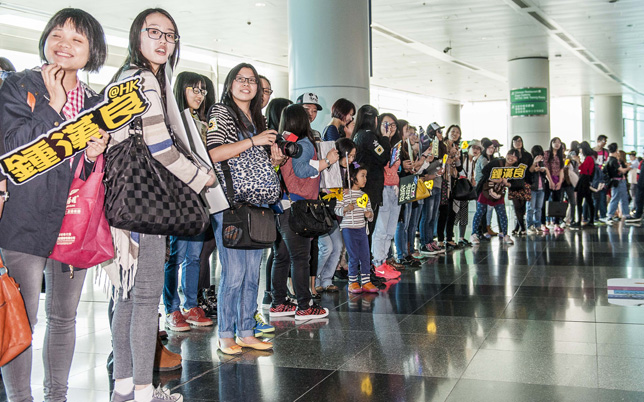
- Industry
Hollywood on the Yangtze – China’s exploding Film Boom
Just ten years ago the Chinese film market was a distribution backwater, a mere afterthought in Hollywood’s marketing and production strategies. Today the world’s second largest and fastest growing economy is the next frontier in entertainment. Box office income rose 30% in the first quarter of 2014, spurred to a lofty $1.08 billion by top earners The Hobbit: Desolation of Smaug ($74 million), Need for Speed (which out-grossed its U.S. release at $60 million), and Despicable Me 2 ($53 million). Yearlong estimates show a projected $4.42 billion, exceeding 2013’s total by $800 million. At this rate, China will overtake North America as the number one film territory in just 4 years and will be twice that by 2023. And sales are not the only thing going up in the East. Screens are being opened at a rate of 17 per day. If China’s track record in manufacturing is any indication of how its film industry is set to grow we may well see the world’s Dream Factory move across the Pacific in the next decade.
These record numbers have executives salivating and studios are doing everything in their power to cash in on the flurry of growth. At the end of March Johnny Depp, who in his 30-year career as an actor has travelled the world promoting his films, made his first visit to China in support of his new movie Transcendence, which opens April 18 in the U.S. The barnstorming 48 hour national tour was the only stop on the picture’s foreign PR circuit. One week earlier Chris Evans, Samuel L. Jackson, and Scarlett Johansson were in Beijing pushing their new blockbuster Captain America: The Winter Soldier. Their efforts have paid off handsomely as the Disney and Marvel Studios picture opened to a record $39.2 million, their biggest ever release in China. Much of this prodigious market expansion is due to Chinese involvement in Hollywood productions. Mr. Depp’s film, Transcendence, was coproduced with Beijing entertainment giant DMG entertainment. But increased profits do come with a certain price as studios are increasingly forced to tweak their films to satisfy Chinese taste. Last week Dreamworks CEO Jeffrey Katzenberg was forced to make a statement rebuking political accusations regarding his decision to co-produce The Tibet Code with Chinese Film Group. Last year’s Looper, which was written with key scenes in Paris was retailored to feature Beijing, while 1980’s cold war action remake Red Dawn was updated to make a Chinese doctor humanity’s savior. With Hollywood’s history of bowing to foreign censors, it may be some time before we see another Kundun, Seven Years in Tibet, or even a Chinese Bond villain.
While imported movies are making impressive gains, the lion’s share of box office receipts still belongs to Chinese productions. Last year’s top performer was Enlight Media at $115.3 million, of which $111.17 million came from 2013’s box-office champ Where are we going, Dad? . Second place belonged to Dalian based conglomerate Wanda Group, a real estate and entertainment giant that bought AMC theatres in 2012. Last December Wanda chairman Wang Jianlin, China’s richest man, unveiled an ambitious Five Year Plan to make his country the world’s leader in entertainment. Citing a Communist Party declaration of culture as a “pillar industry”, Jianlin has committed $8.3 Billion to building the world’s largest film studio in Qingdao, a city of 7.5 million located 550 miles south-east of Beijing. Construction began in September with stars Nicole Kidman, Kate Bosworth, Christoph Waltz, Catherina Zeta Jones, and Leonardo DiCaprio in attendance for the groundbreaking ceremony. All of this in hopes of creating the one thing the Chinese film industry is lacking: a major international hit.
Crouching Tiger Hidden Dragon, released in the year 2000, remains China’s biggest ever global performer. In almost 15 years no Chinese film has been able to match the success of director Ang Lee’s Golden Globe and Oscar winning martial arts epic. Production, exports, and GDP growth are all surging forward but China is still lacking a global cultural influence commensurate with its economic prowess. Projects like Wanda’s are being undertaken with the explicit aim of advancing China’s “soft power” throughout the world. With this level of investment and an archive of 5000 years of mythology to draw upon, it may be only a matter of time before the “Made in China” label becomes commonplace at theatres around the world.
Lorenzo Soria

